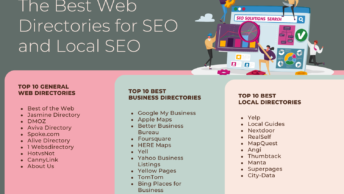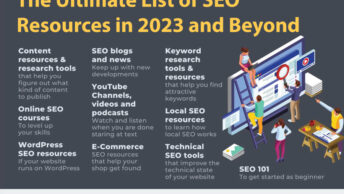Such a simple title, eh? And, how many headlines are out there that say basically the same thing? Do we want to spend 20 hours per day reading every article that says it can help us generate traffic? Not me. I have way too much to do to read and read and read and not find that answer to the “more traffic” question.
So, let’s see what the experts say… Who are the experts? I’m going to leave that up to you. I know. About now you are thinking, “Well she is no help.” But, wait. Some of the people that I may consider experts are in the category of those whom you define as experts. Why? Because they can prove it!
They can put their money where their mouth is.
Ok, that is an old phrase, but one that pops up in the academic world a lot is “evidence-based.” So, with that in mind, let’s take a look at some of those strategies presented by those whom you may define as “experts” and see how they prove it by what would be called “analytics.” (If it isn’t the case, they deserve some points for being excellent entertainers in the “con man” or “con woman” category, eh?)
So, first, let’s go easy on our brains and ease into this topic (something I say to my students all the time before we dig into the complicated statistical tests … on the next night).

Bring In Those Referrals… They Can Exponentially Increase Your Traffic!
Seriously, think about the math of that statement. Don’t just take my word for it, apply some logic to it. Ok, I promised we are still keeping it simple. Simple enough that you can take a look at the infographic on this page and visit the article that backs the infographic, on “4 Steps to Start Earning More Referrals.”
If you do this right, you do have the opportunity to:
- Prove that you are credible (i.e. eventually a subject matter expert yourself!).
- By each referral referring a few people (whatever that number), you have the possibility of exponential growth (depending on how well you do your part).
- If you are initiating the “earning referrals” well, this starts to become a machine of its own and you can ease back on the active roles as the “machine” picks up momentum on the “active” role.
Let’s break apart the main points of the infographic that you can see right in front of you, thanks to Andrew, the CEO at BiznessApps.
First, before the list, there is this thing called “Effort.” Andrew has a great quote for us, “Referrals are a direct result of the effort and excellent work done by you and your staff.” He also mentions things like “mobile apps” (which does take work, but provides a good return on investment on that effort!). To see what I mean, check out >> “Know Your Customers: How To Get The Data You Need for Your Business (Mobile Apps and Their Ability to Obtain Data).”
Now that we realize that effort level (while understanding the potential rewards from our efforts, let’s look at Andrew’s list):
- Educate.
- Surprise.
- Resolve.
- Ask.
It’s funny, as I look at the list, how closely that aligns with my own experience in teaching. Well, the teaching part fits the bill on “Educate,” assuming I am actually hitting some sort of mark on the teaching level at all. But, the others play into it, as well, with the “surprise” (i.e. I surprise my students with “bonus sessions” and resources that they weren’t expecting). I help them to learn how to resolve their issues (which helps them to feel good about themselves because they have learned how to perform the resolution and they have their issues (i.e. class assignments) “resolved.” But, before ending a session, I always ask the students if they understand and if what has been presented makes sense.
You know what the result is? Increased attendance and increased engagement! So, if we follow what Andrew suggests, we receive positive results, like this [case study] example demonstrates:
[slideshare id=61532770&doc=testimonials-160430145804]
The Basics of Generating More Organic Traffic
Ok, ready for another article and opportunity to “judge” for yourself if this author has the evidence or analytics to support his advice? This article is entitled, “Can You Grow Your Organic Traffic Without Generating Content?”
It is a very interesting analysis (and comparison) between different sites and their level of content and how that plays out in SEO (search engine optimization), but more specifically in the area of traffic and findability.
Some of the basics that we learn from this article include some things that we already knew (but are nice to repeat):
You may know that content is king, but it doesn’t matter without traffic. Many small business owners have a budget for marketing their website. Others do not. Thankfully, there are efficient and effective ways to grow your organic traffic without breaking the bank. Have patience when employing these methods to grow your organic traffic and you’ll see results.
Generate Content Regularly
What we are learning from Neil Patel and his analytics is that content does help a site to do well, hence the “Content is King” statement. However, he also gives an example of user content (You tell me, did that work really well?) and another site where the content level was not necessarily high, but the usability of the site seemed to help it to do well. What does that tell you about the balance?
Generally speaking, we find that for the common person, a website is going to require a large number of pages with unique content. The highest-ranking sites on Google have thousands and into the millions of unique pages. Generally speaking, the more content (blog posts; pages) that you have available on your site, the more keywords you’re giving to the search engines to help them rank your site. It has been argued whether your content rich pages should be short or long. There are successful websites with millions of visitors that have 100 words while others have 2,000 words or more. Although, what these sites all have in common are multiple pages with unique content.
Interesting, eh? And, proof that there are many perspectives floating out on the internet, including our own!
Increase the Page Count
Consider that a popular vacation rental website has 45 million pages indexed, or a user-generated news site that has 10,000 pages indexed. These websites are all receiving massive amounts of organic traffic, though not every page contains a great amount of content. Do you remember reading about that in Mr. Patel’s article? What did you learn from his point(s)?
The point of the story is that you should generate as many pages of content as possible (but it must be relevant, so you don’t receive a search engine penalty). No matter how rich the content may be on these pages, you increase the likelihood of ranking for long-tail terms if you build more pages, as opposed to not taking that step at all. Where did we learn that?
Get Media Exposure
I found another article that is helpful, and I went to see who wrote it and guess what… It happens to be Mr. Patel, himself. Though, it is another opportunity to see how that evidence-based, analytics-proving technique works. Neil Patel is out there following his own advice (particularly what we are about to present in this section) and it is working for him. Does that make him an expert? What was our criteria for that? We are looking at the evidence-based and the analytics, that someone can prove that what they are saying is repeatable and produces success each time (if success is what they claim).
So, as we saw in the case of the infographic, above, Andrew’s advice proved true for himself, and applying it to my situation, starting from an unbiased position, it proved true there, as well.
So, back to the topic of media exposure…
Your site will benefit from media exposure. It should be a part of your marketing strategy to create reasons for the press to reach out to you. Did you catch that? Read that one again (please). You want the press to want you!
Press matters to online marketing because it helps build links. It also helps to build credibility and authority and that, “Hey, that person is a subject matter expert!” moment(s).
Getting major media sites that are relevant to your brand to link to your site will help grow your organic traffic. If you have it in the budget, connect with a PR agency that already has the contacts that you desire to make. Use this as a way to help determine which agency you should hire. They should have contact with a media site that you want to feature your site.
Another way to get press is to utilize a service like “Help a Reporter Out” (more affectionately known by their acronym, “HARO”), which allows you to reach out to the press directly. It also allows you to get a view into what the press is looking for and what topics are of interest to the general press population at that given time.
Oh, and I was going to provide you with that link to that other article, wasn’t I? I mean, yes, this stuff comes off the top of my head, but then I check the article and guess who else is saying similar stuff? Oh, we already chatted about that. So, check out the article, “7 Proactive Ways to Get Backlinks That’ll Actually Boost Your Traffic.” True, it was written a year and a half ago, but it still covers some valid points, like the press and the backlinks.
If you notice, the date of the article was before a couple of memorable and historical moments like Google’s attempt at a takedown of MyBlogGuest and some other penalties that affected numerous sites. But, that doesn’t mean that backlinks are dead. We just need to continue to go for that evidence-based, analytics-supporting information.
And, ensure that we are listening to the experts, but more than that, ensuring that there is the proof that supports what is being said.
Backlinks still matter… and … Have you considered Quora?
Being helpful online goes a long way. One of the first tips at this third article is to join Quora and start answering questions. It makes sense, doesn’t it?
Assisting people with their questions helps place you in an authoritative position while joining the conversation of your prospects. (Do you see the many benefits to that arrangement?) If you utilize forums properly for backlinks without spamming, your site will receive additional organic traffic. Q&A (Question and Answer) sites and forums have been popular even before blogs came onto the scene. This approach is also considered an easier approach, in some cases, because it involves less complexity (or, at least that is how it is viewed by some of those who prefer Q&A sites).
For your part, as a promoter, you can answer questions and a helpful manner and provide a link to your site all at the same time. Have you ever notice that that even looks less spammy than a comment on a blog post that has two sentences and then a “come visit my site to see how you can grow your hair longer?” On Quora, it is like the responses are mini blog posts in and of themselves, with an incidental link to a helpful blog post. It is built to be a help aid and open to you to use it to help others (and yourself).
This approach can be utilized without being overly promotional and by being truly helpful and resourceful for the person asking the question or asking for help. Linking to other sites that are relevant to yours from within your content is a great way to build backlinks and to network.
Final Thoughts
Now that we have taken the time to have a sort of conversation (one-way as it may be because of the nature of a blog post) about three different articles, it is your turn. What have you learned? We’ve put some commentary out there on these articles, but it is your turn to see if the articles, infographics, and even the commentary holds up to the test of evidence-based success and analytics that support the statements.







